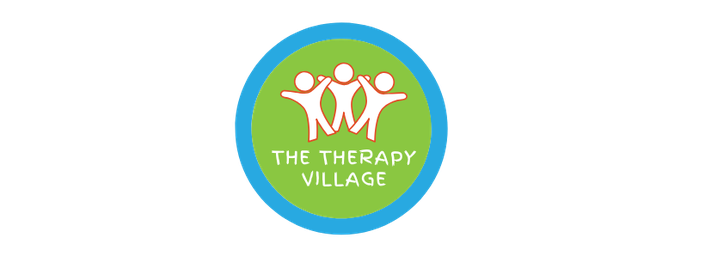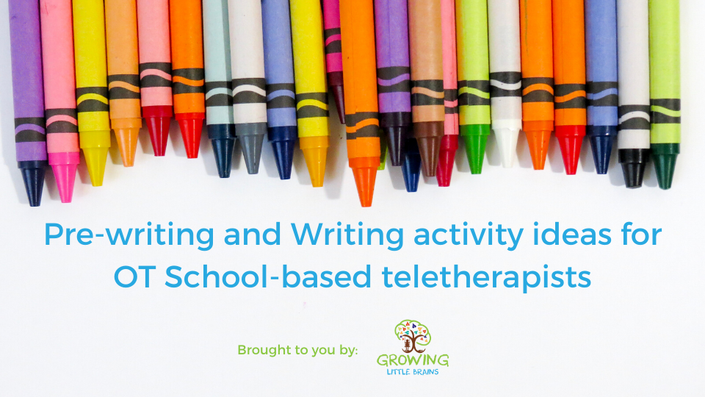Are you new to Early Intervention?
or
Thinking of transitioning to Early Intervention from another practice setting?
Then this is the course for you!
As Early Interventionists, we will achieve better outcomes when we coach families to carry out therapeutic interventions throughout their daily routines. When we can effectively problem solve with our families, we give them the confidence and tools to support their child for a lifetime.
Do you agree?
If so, how well did your university or employer prepare you to treat the whole child and family unit?
Mine did not.
I spent the first portion of my career "faking it" and feeling frustrated, like a failure, and burned out when I wasn't feeling effective to help the families I served.
A few years into practice and many continuing education courses later, I was still struggling to get my families to follow through with the strategies I was teaching them. I thought maybe I just needed to keep taking more courses.
Unfortunately, that was not the answer and it would take many more years to find out what the missing piece was.
It wasn't until I had my first child (who experienced some developmental delays and required EI services) that I realized I was often asking families to do things that were completely unrealistic.
I was not considering what was important to them, what was realistic to fit into their day, and I wasn't involving them in the process enough.
Around the same time as my son was receiving Early Intervention services, I was working as an EI therapist and our agency began introducing the parent coaching model.
I read all the things and tried to make sense of it but it was a slow process and I really struggled to understand how to apply the coaching principles I was reading about into my actual EI sessions.
I thought if I could just observe other therapists doing coaching, I could learn much quicker.
And this is why I became so passionate about studying the work of so many leaders in the field of parent coaching and building this course so other therapists could learn at a faster pace and feel confident coaching their families to achieve their outcomes.
This course is for all Early Intervention practitioners who want to make a real difference in the lives of their families through implementation of a parent coaching model.
The Details:
Target Audience: Early Intervention Occupational Therapists, Occupational Therapy Assistants, OT students, Physical Therapists, Speech Language Pathologists, Early Childhood Special Educators, Early Interventionists
Course Description:
This is a 5.5 hour online self-paced course for Early Intervention Occupational Therapists, Occupational Therapy Assistants, OT students, Physical Therapists, Speech-Language Pathologists or other Early Intervention professionals that want to utilize a parent coaching model of intervention with their clients. A detailed description of each step of the coaching model as defined by Rush and Shelden will be discussed. Pre-recorded videos from Early Intervention treatment sessions will be shared to model each step of the coaching model. In addition, numerous parent handouts and therapist resources are provided to deepen the understanding of this model.
Continuing Education Units: 5.5 contact hours (0.55 CEUs)
Educational Level: Introductory
Instructional Methods:
Video lecture (pre-recorded on Zoom, audio with slides), video case examples.
Participants must pass (80%) a short quiz after each module and complete an end of course survey in order to receive a certificate of completion.

Learning Objectives/Outcomes:
Participants will be able to:
1.List 5 benefits of using parent coaching in Early Intervention.
2.Describe 3 mindset shifts needed to transition from therapist to parent coach.
3. List 3 tips for setting the stage for coaching success.
4.List 7 keys for building a strong relationship with families.
5.Describe Coaching step #1: How to joint plan with families.
6. Identify 5 tips to structure your first session with families.
7.Explain the caregiver interview to your families and name 6 assessments to help guide your interview.
8.Identify a 3 step process for caregiver interviewing and watch a complete caregiver interview.
9. List the 5 keys to coaching step #2-Observation.
10. Practice using an observation checklist during a case study example.
11. Identify the principles of coaching step #3-Action/practice
12. Identify 3 roles of the therapist during action/practice.
13. Describe 5 ways to facilitate caregivers into action/practice.
14. Describe a process for troubleshooting challenging families.
15. Describe the 6 adult learning styles.
16. Explain Coaching step #4-Reflection and Feedback.
17. List 4 types of reflective questions.
18. List 4 types of feedback.
19. Plan with families at the end of the session
20. Summarize how to organize an EI session.
21. Locate a self-reflection checklist for use after their EI sessions.
22. Recognize situations that may result in the need for changing IFSP outcomes and/or discharge.
23. Identify 5 tips to promote self-care.
Example Curriculum
- Sample questions for a parent interview for therapists
- Assessments used for parent interviewing
- Informal observations for therapists
- OT Assessment Checklist for therapists
- Melanie's observations from Lesson 2.5
- Self-assessment: How are you supporting caregivers during visits-for therapists
- Reflection questions
- Sample question sequence for coaching sessions
- Self-assessment: Balanced Intervention Strategies-for therapists
- What to do when an IFSP outcome is no longer relevant flow chart-for therapists
- Routines Based Interview-Video Examples
- Welcome to OT parent handout
- Welcome to Early Intervention parent handout
- What to expect during an EI visit-parent handout
- What to expect during an EI visit (Spanish version)-parent handout
- Mega List of playtime activities and ideas-parent handout
- Playing with your baby: 0-6 months-parent handout
- Playing with your baby: 6-12 months-parent handout
- Playing with your toddler-12-36 months-parent handout
- Playing with your preschooler: 3-5 years old-parent handout
- Household items to use for toys
- Module 1 Slides
- Module 1 Introduction and objectives (1:57)
- Lesson 1.1: Why coach? (6:15)
- VIDEO: NYC Health: Early Intervention: Family-Centered Best Practices
- Lesson 1.2: Mindset shift from therapist to coach (11:19)
- Lesson 1.3: Setting the stage (12:46)
- VIDEO: Explaining OT to a family
- VIDEO: Explaining coaching to a family
- Lesson 1.4: Tips for building a relationship with families (12:08)
- Lesson 1.5: Coaching step #1: How to joint plan with families
- VIDEO: VEIPD: Early Intervention Part 3: Changing the Mindset
- Module 1 Quiz
- Module 2 Slides
- Module 2 Introduction and Objectives (1:36)
- Lesson 2.1: The first session (7:34)
- Lesson 2.2: The caregiver interview (5:30)
- Lesson 2.3: How to do an informal caregiver interview (9:39)
- VIDEO: A sample caregiver interview
- Lesson 2.4: Coaching Step #2: Observation (7:11)
- Lesson 2.5: Observation checklist + Case Study (10:58)
- VIDEO: Toddler Observation Video 3
- Module 2 Quiz
- Module 3 Slides
- Module 3 Introduction and Objectives (2:56)
- Lesson 3.1: Coaching Step #3: Action & Practice (3:16)
- Lesson 3.2: The Therapist's role in action/practice (13:13)
- Lesson 3.3: Helping families take action (11:29)
- Lesson 3.4: Troubleshooting challenging families (10:02)
- Lesson 3.5: Adult Learning Principles (14:57)
- Module 3 Quiz
- Module 4 Slides
- Module 4 Introduction and objectives (2:43)
- Lesson 4.1: Coaching step #4: Reflection (7:43)
- Lesson 4.2: 4 Types of Reflective questions (13:45)
- Lesson 4.3-Coaching step #5-Feedback (1:52)
- Lesson 4.4: 4 Types of feedback (20:19)
- Lesson 4.5: Reflection and Feedback (1:50)
- Lesson 4.5: VIDEO: Example of reflection/feedback
- Module 4 Quiz
- Module 5 Slides
- Module 5 Introduction and Objectives (2:28)
- Lesson 5.1: Coaching Step #6: Joint Planning at the end of the session (5:35)
- Lesson 5.2: Pulling it all together (5:28)
- Lesson 5.3: Self-Reflection (2:34)
- Lesson 5.4: Discharging clients (5:49)
- Lesson 5.5: Self-care for therapists (14:43)
- Module 5 Quiz
Meet your instructor: Melanie Batista, OTR/L
I'm on a mission to create a community of therapists who are passionate about serving families with young children. To create practitioners who feel confident in their skills, supported in their practice, and up to date on the latest research about development and intervention in the field of early childhood. In doing so, we can empower more families to support their child's development right from the start.
I'm a licensed pediatric Occupational Therapist with 23 years of experience working with children of all ages. I received a Bachelor of Science degree in Occupational Therapy from Quinnipiac University in Hamden, CT in 2000. I am infant massage and SIPT certified. I also have been trained in the SOS feeding approach, Handwriting with Tears, and the Therapeutic Listening approach. I've worked in many settings including schools, hospital, NICU, outpatient, academia, Early Intervention and telehealth. I am licensed in the states of Colorado, South Carolina, and Georgia and currently work in the public school setting on an Early Childhood Evaluation team.
My love for working with children started at any early age (I decided to become an OT when I was 14!). However, my most important job is being a mom to 2 young, active boys. My entire professional career took a turn for the better after experiencing Early Intervention as a parent after my first son was born premature. The insights and wisdom I gained through these challenging years is what I aim to share with parents and therapists through my online work.
My passion for serving other therapists also grew after becoming a Fieldwork Educator and later the Academic Fieldwork Coordinator and adjunt professor for an Occupational Therapy Assistant program. The foundational knowledge achieved in academia is just the beginning. I realized therapists need more support to apply this knowledge in the field and to avoid burnout when they are in the early stages of their career.
All of these experiences led me to found Growing Little Brains, a website and blog dedicated to coaching therapists and caregivers on ways to connect, move, and play with their young children. Growing Little Brains mission is to be a reliable source for best practice, parent coaching, and child development information to best help a child’s brain learn and grow.
The Therapy Village was created because I'm extremely passionate about helping other OTs/COTAs feel confident and supported in their Early Intervention practice. I wanted a place where therapists could collaborate, learn about a variety of topics to support the whole child/family, and grow professionally without judgement.
Thanks for joining me on this mission. We are better together!




